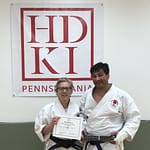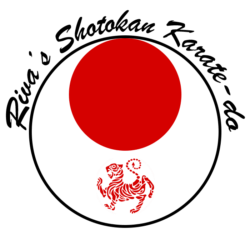
I believe challenging yourself is the key to staying young at heart. When we were kids, everything was new and the start of an exciting journey. Nowadays, I have become more aware of my physical limitations and the knowledge that I most likely will never be as fast or as strong as I once was. I am reminded of this each morning with the daily ritual of inventorying the aches and pains and managing blood pressure. And contrary to this reality is the fact that in my head, I am still 25 years old. My daughter describes this as the delusional stage in life when you see others in your age group and think you couldn’t possibly be that old.
I believe the reason many people perceive themselves as they were in their prime is from the memories of what life was like at that time in their lives. But for some; recalling a personal best, a championship game, or anytime they felt invincible can become bittersweet. And unfortunately for many, this leads to becoming less active or even to completely leave the activity that once helped define them as individuals.
Starting something new introduces a personal challenge into your life. When I was in my mid-forties, feeling as though I was struggling to just maintain a good fitness level and at times even stagnate with a boring old and routine workout regimen. What I was searching for was a challenge, and what I discovered was martial arts and eventually traditional Shotokan Karate.
There are many benefits to practicing martial arts; however, for this discussion I will focus on Physical and Mental strength aspects of karate:
Improvement of physical condition is the obvious benefit from training in karate. Aside from increased stamina and endurance, karate also helps to balance blood pressure and circulation as well as lower cholesterol levels. Moreover, improved muscular flexibility and joint health increase quality of life.
When an individual returns to a physical activity following an absence, the physical rebound can be euphoric. But consider this; the physical rebound resulting from muscle memory can be described as a reawakening or rebuilding of the strength that had weakened from being unused. So is this reawakening or rebuilding process creating real strength? True strength comes from challenging yourself; putting yourself in an uncomfortable situation, and succeeding by overcoming an obstacle you may have been unaware of. Simply maintaining physical condition does not accomplish this.
One of the most important roles of the karate instructor (Sensei) is to challenge their students (karateka) and make them uncomfortable so they can ultimately become stronger. A skilled sensei observes the karateka to identify weak areas. This could be flexibility or balance issues; but whatever the issue is, this will be the area emphasized during training. By doing this, the sensei is helping to strengthen the karateka.
Physical exercise also provides a natural mechanism for reducing psychological from a behavioral perspective, the same antidepressant-like effects associated with “runner’s high” is associated with a drop-in stress hormones. A study from Stockholm showed that the antidepressant effect of exercise was also associated with cell growth in the area of the brain responsible for learning and memory.
Whenever a karateka pushes their training to a physical limit, the goal is to commit total mental and physical concentration of the task at hand. If done properly, the karateka cannot think of anything else because they simply have no energy to spare and can only focus on the here and now. The real benefit comes from realizing that when you are committed to the task at hand you produce results more efficiently and faster which sets you free to take on the next task and ultimately achieve more.
This physical and mental attention must also be applied when training for Kata; a series of movements or drills in both defensive and offensive techniques combined to simulate a battle. An additional benefit of kata training is the practitioner’s improved memory and cognition. Karate training stimulates the brain by stimulating growth of new connections between cells in a wide array of important cortical areas of the brain. Recent research from UCLA demonstrated that exercise increased growth factors in the brain—making it easier for the brain to grow new neuronal connections.
In conclusion it is very important to note that Karate is not a sport or a new fitness trend. Martial arts are exactly that, an art. In its current form, karate is less than 200 years old however it has roots that date back thousands of years. The art originated on the island of Okinawa and in its early form was heavily influenced by ancient Chinese martial arts.
When an individual decides to begin karate training, they are not just taking up a new workout routine. They are beginning a journey that begins with learning the physical movements and though hard work, dedication, and attention to the details can develop into a lifestyle.
“The ultimate aim” (of the martial arts)… “lies not in victory or defeat, but in the perfection of the character of its participants” (Gichin Funakoshi)
*Krassimir Doynov, Ph.D., Shotokan Karate-Do Club & Kobudo at UH
*Ashleigh Johnstone PhD., Cognitive Neuroscience at Bangor University
*Physical Exercise for Brain Health, www.brainhq.com
